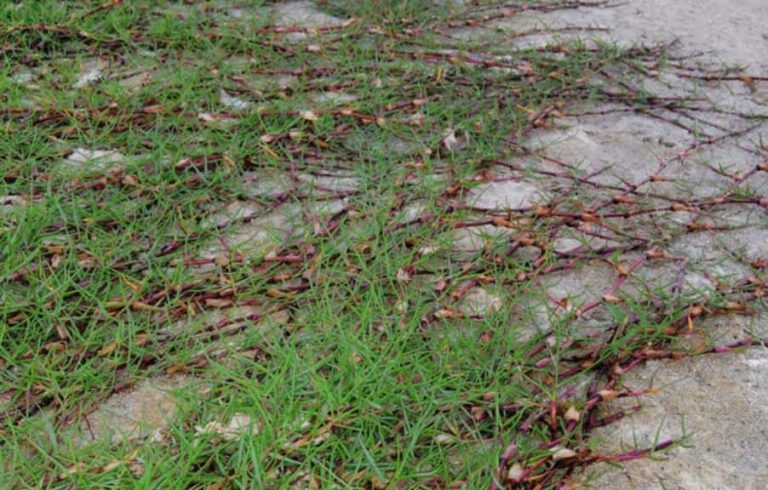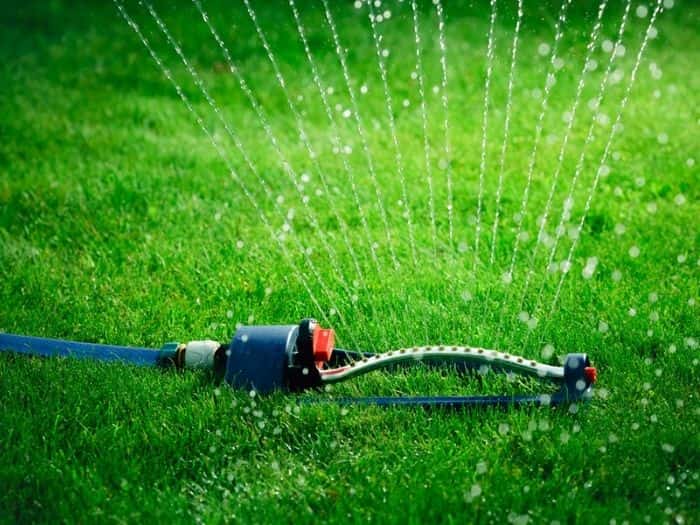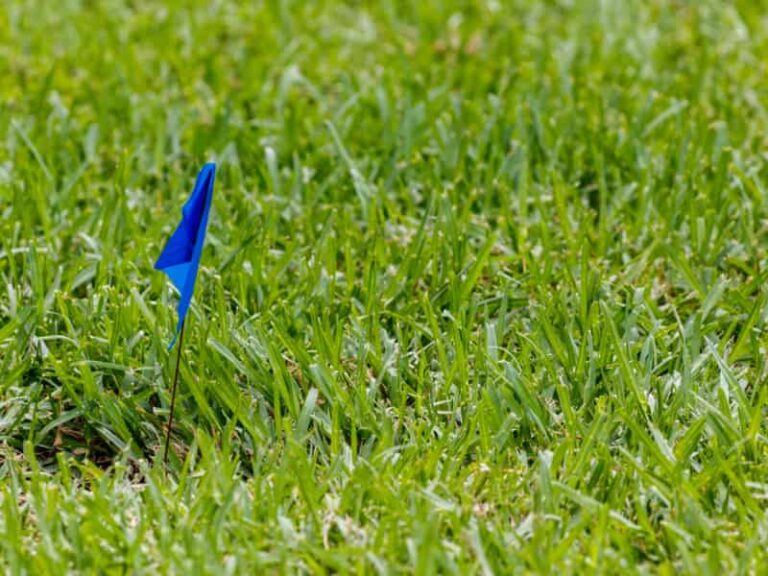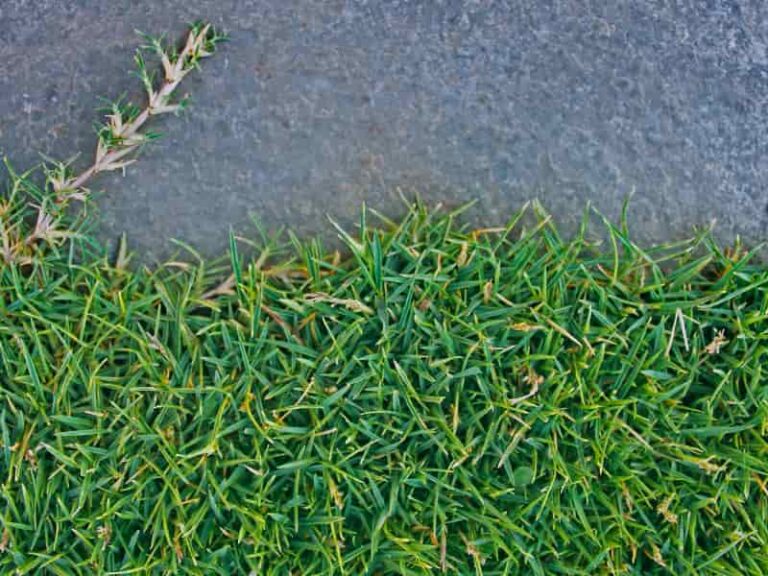Different Types of Bermuda Grass
Cynodon dactylon, commonly known as Bermuda grass, is a well-known perennial turf grass native to the Mediterranean, Africa, Europe, and Asia. It’s commonly used for pasture, golf courses, tennis courts, bowling greens, athletic fields, and high-quality lawns. Bermuda grass has over 50 varieties divided into two types: seeded Bermuda grass and sterile vegetative hybrids.
Classification (Common vs. Hybrid Bermudagrass)
It is difficult to distinguish the blades of standard and hybrid Bermuda grass varieties. The difference is most noticeable if you leave a patch of grass unmowed for a week. Common Bermuda grass seed heads will quickly rise above the unmowed patch level, whereas hybrid Bermuda grass seed heads will be smaller.
Dr. Wayne Hanna, a USDA grass geneticist in Tifton, suggests tapping a seed head from each onto a piece of black paper to tell them apart. The pollen from common Bermuda grass will form a tiny yellow cloud on the paper, while the pollen produced by hybrid Bermuda grass is sterile.
If the two grow next to each other, the hybrid grass will be a deeper green than the standard type.
Different types of Bermuda grass
Here are the different varieties of Bermuda grass:
Celebration Bermudagrass
Most people prefer celebrating Bermuda grass because of its deep blue-green color. This variety performed best in numerous university research studies for wear tolerance and recovery, drought resistance, drought tolerance, and shade tolerance.
Drought tolerance and drought resistance are not the same thing. Drought tolerance is the ability of the Bermuda grass Celebration to survive a drought, whereas drought resistance is its ability to look good while suffering from drought. Celebration Bermuda grass comes out on top in both tests.
It is commonly found on professional golf courses and sports fields worldwide, not just in the United States.
Characteristics of Celebration Bermuda grass
- Width of the blade: 1.7 mm
- Excellent Wear Tolerance
- Injury and shade recovery are excellent.
- Tolerance: Excellent
- Drought Tolerance: Extremely High
- Insect Resistance: Excellent Disease Excellent resistance
- Weed Control: Excellent
- Golf, commercial landscapes, sports fields, parks, and home lawns are good places to put it.
- 0.5–1.5 inch mowing height
Bermuda grass at 36 degrees latitude
Latitude 36® Bermuda grass is well-known for its striking color and texture, which set it apart from other home lawns and Bermuda grasses. The renowned Oklahoma State University developed this turfgrass, one of the most cold-hardy Bermuda grasses available.
Latitude 36, like NorthBridge, is one of the few Bermuda grass varieties that will grow into the transition zone (shown below), found in Southern California and extends across the United States to North Carolina and Virginia.
Characteristics of Bermuda grass at Latitude 36
- Golf, commercial landscapes, sports fields, parks, and home lawns are good places to put it.
- 0.5–1.5 inch mowing height
- Blade Width: 1.67 mm
- Wear Tolerance: Excellent
- Injury and shade recovery: Excellent.
- Drought Tolerance: Excellent
- Insect Resistance: Excellent
- Disease resistance: Excellent
- Weed Control: Excellent
Bermuda grass NorthBridge
NorthBridge Bermuda grass, like Latitude 36, is a turfgrass developed by Oklahoma State University that will thrive in the United States’ transition zone. NorthBridge has a fine texture, increased cold tolerance, early spring green-up, and high sod strength.
It’s tensile strength and aggressive rooting make it one of the most long-lasting options for homeowners with children and pets who enjoy spending time outside. NorthBridge is a finer-bladed Bermuda grass with the same color as Latitude 36.
Characteristics of Bridge Bermuda grass
- Commercial landscapes, golf courses, sports fields, and home lawns are ideal applications.
- 0.5–1.5 inch mowing height
- 1.68 mm blade width
- Wear Tolerance: Excellent
- Injury and shade recovery: Excellent.
- Drought Tolerance: Excellent
- Insect Resistance: Excellent
- Disease resistance: Excellent
- Weed Control: Excellent
Bermuda grass Tifway 419
While Tifway 419 Bermuda grass has been at the top of the list for sports turf, it is also an excellent choice for a well-loved lawn. Tifway 419 is a dark green Bermuda grass with a fine texture and high weed and disease resistance.
It has a dense, rapidly spreading growth habit, allowing it to recover quickly from injury. Tifway 419 Bermuda grass is one of the most durable hybrid Bermuda selections available.
Tifway 419 has a medium-low, vigorous growth habit that takes hold quickly after planting. It will thrive in the southern two-thirds of the United States and tolerates close mowing heights of 1–2 inches.
Characteristics of Tifway 419 Bermuda grass
- Commercial landscapes, golf courses, sports fields, and home lawns are ideal applications.
- 1–2 inch mowing height
- 5–7 mm blade width
- Wear Tolerance: Excellent
- shade’s Injury Recovery: Excellent
- Tolerance: Good drought tolerance
- Excellent disease resistance
- Insects Resistance: Excellent
- Weed Control: Excellent
Bermuda grass TifTuf
TifTuf Bermuda grass was created to be drought tolerant. If you live in an area with long, dry summers, TifTuf may be your best option.
This fine-textured Bermuda grass requires 38% less water than other Bermuda grass cultivars. It also tolerates shade well and stays green longer in the fall than other grasses. TifTuf, like most Bermuda grasses, thrives in the southern two-thirds of the United States.
Characteristics of TifTuf Bermuda grass
- Commercial landscapes, golf courses, sports fields, and home lawns are ideal applications.
- 0.5–2 inch mowing height
- Width of the blade: 1.7 mm
- Excellent wear tolerance
- Injury and shade recovery are excellent.
- Drought Tolerance: Extremely High
- Insect Resistance: Good
- Disease resistance: Excellent
- Weed Control: Excellent
Bermuda grass Tahoma 31
Tahoma 31 Bermuda grass, like Latitude 36 and NorthBridge, was developed at Oklahoma State University to have excellent turfgrass quality and cold tolerance. Tahoma 31’s other key characteristics include a finer texture, drought resistance, early spring green-up, and wear tolerance.
Tahoma 31 demonstrated exceptional cold hardiness and resistance to winterkill in the NTEP trials. It also greened up next to other Bermuda grass cultivars that had died in the same cold weather.
Characteristics of Tahoma 31
- Commercial landscapes, golf courses, sports fields, and home lawns are ideal applications.
- 0.5–1.5 inch mowing height
- 5–7 mm blade width
- Wear tolerance: Excellent
- Injury and shade recovery: Excellent
- Cold tolerance: Extreme
- Insect resistance: Good
- Disease resistance: Excellent
- Weed control: Excellent
Bimini (from the Bahamas)
Bimini Bermuda grass, like Tifway 419, is a fine-textured hybrid Bermuda grass. It has a lovely dark green color and a dense canopy. Bimini is one of the most durable turfgrasses available due to its rapidly spreading growth habit and quick recovery from injury.
It has a soft texture that many people will enjoy walking barefoot. Bimini will quickly establish a dense root system. As a result, it is resistant to external stresses such as heat, drought, heavy foot traffic, pests, and disease.
Characteristics of Bimini Bermuda grass
- Commercial landscapes, golf courses, sports fields, and home lawns are ideal applications.
- 1–2 inch mowing height
- 5–7 mm blade width
- Excellent wear tolerance
- Injury and shade recovery are excellent.
- Disease tolerance: Good
- Drought tolerance: Excellent
- Insect resistance: Excellent
- Weed Control: Excellent
| Bermuda grass | Blade width (mm) | Mowing height (inch) | Wear tolerance | Injury/shade recovery | Disease tolerance | Drought resistance | Insect resistance |
| Celebration | 1.7 | 0.5–1.5 | Excellent | Excellent | Excellent | Extremely High | Excellent |
| Latitude 36® | 1.67 | 0.5–1.5 | Excellent | Excellent | Excellent | Good | Excellent |
| NorthBridge | 1.68 | 0.5–1.5 | Excellent | Excellent | Excellent | Excellent | Excellent |
| Tifway 419 | 5-7 | 1–2 | Excellent | Excellent | Excellent | Excellent | Excellent |
| TifTuf | 1.7 | 0.5–2 | Excellent | Excellent | Excellent | Extremely high | Good |
| Tahoma 31 | 5–7 | 0.5–1.5 | Extreme | Excellent | Excellent | Good | Good |
| Bimini | 5-7 | 1–2 | Excellent | Excellent | Good | Excellent | Excellent |
Best Bermuda grass varieties for lawns
Only a few varieties of Bermuda grass can be seeded traditionally. Improved Common Bermuda Grass is the name given to these varieties. They are the best Bermuda grass for lawns as they’re improved varieties, darker in color, have a medium-fine texture, and have deeper roots than regular Common Bermuda grass that’s often a weed in lawns.
The varieties listed below are an excellent compromise for those looking for an attractive lawn that doesn’t require much extra work. They are also clearly a more cost-effective option, as seeding is less expensive than sodding, and maintenance is less expensive than with hybrids.
Princess 77
This new high-quality Bermuda variety grows dense and low and has an attractive green color. It is popular for sports fields, lawns, and decorative turf.
Princess 77 seed is available in 1-pound bags from the Pennington brand on Amazon! The results were great color retention in the fall, and most Southern reviewers were pleased.
Blackjack bermuda grass
This variety is frequently used for golf greens because it grows thick, sturdy, and can withstand heavy foot traffic. When fertilized with nitrogen, it turns a lovely deep green.
Riviera
This variety can withstand cold temperatures and will not cause spring dead spots. It greens up and spreads quickly in the spring.
Yuma
Yuma is a great choice for those looking for a bright green color and turns to intense emerald hues when mature. It grows quickly and easily. You will find Yuma gracing high-end golf courses. These grass varieties can be found near your lawn and garden store.
Overall, bermudagrass lawn varieties grow more densely, creating the illusion of carpeted turf. Cold resistance is not always the best in these seeded varieties. Still, they are frequently developed with an enhanced aspect, giving you the best Bermuda seed quality than the regular ones.
Bermuda grass varieties for golf courses
You may wonder which Bermuda grass variety will give you that perfectly manicured golf course look. Blackjack is most frequently used on golf greens, where the grass must be of the highest quality. Tifsport is another popular option for golf courses.
Both have a vibrant green color, a dense growth pattern and are resistant to foot traffic. However, to look their best, these varieties necessitate a lot of upkeep. If you want to achieve golf-like standards for your lawn, you must adhere to a strict watering, fertilizing, and mowing schedule.
For hay
Generally, common Bermuda grass is not the best for lawns but for pasture. Although drought tolerant, hardy, and spreads quickly, it is coarse and sparsely grows with a pale light green color. This type of Bermuda is a nuisance to most lawn owners who care about appearance.
It also produces rather unsightly seed heads, which are usually not a problem if the lawn is regularly mowed. However, Common Bermuda has a higher nutritional value, making it ideal for livestock feed.






